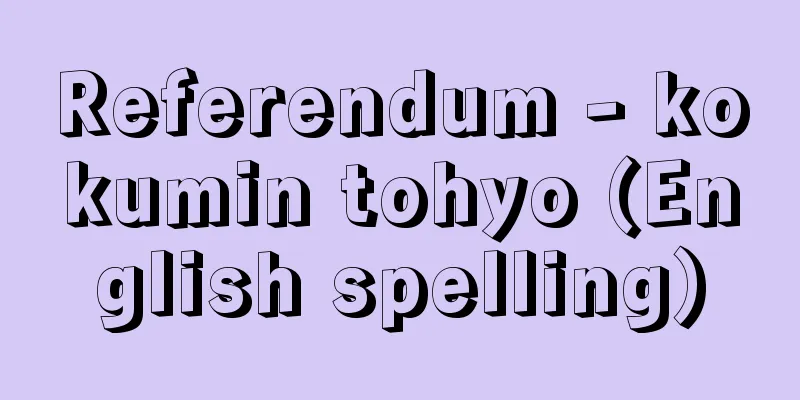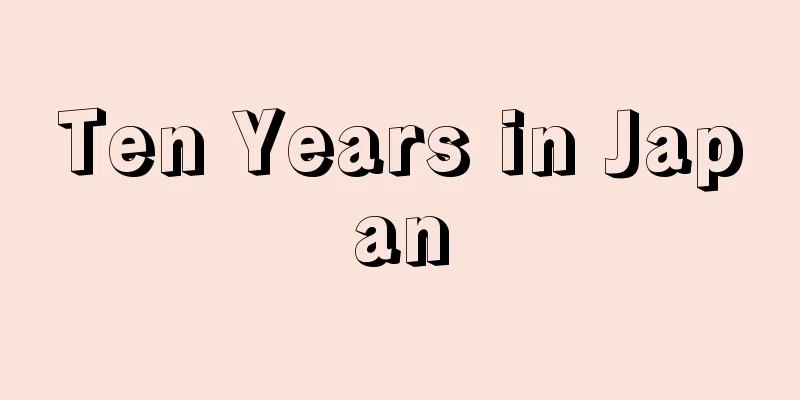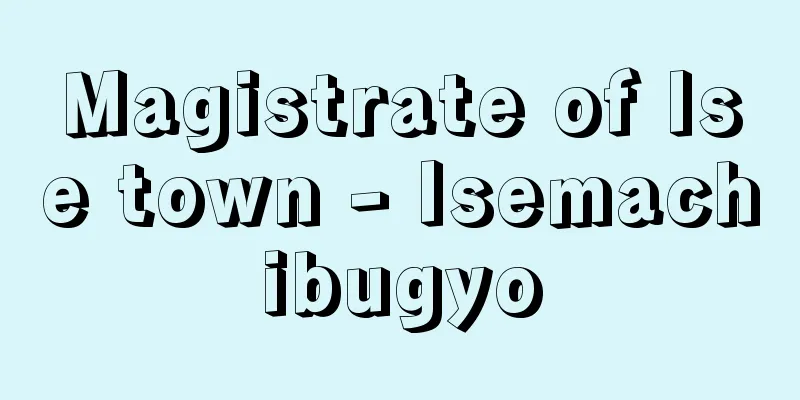Referendum - kokumin tohyo (English spelling)

|
A form of direct democracy. A system in which important proposed matters of national government (such as constitutional amendments) are not finalized by parliamentary resolutions alone, but are instead put to a general vote of the people who have the right to vote. In other words, it means that the people directly express their will and decide whether to approve or reject important matters other than the election of lawmakers and other public officials. Although its origins date back to ancient Greece, the birthplace of referendums in the modern era is Switzerland. The first constitution to be decided by referendum was held in Massachusetts in the United States in 1780, followed by New Hampshire in 1784. However, it was Switzerland that frequently implemented this not only for constitutions but also for general legislation, and developed it into a system unique to the country. The name referendum also originated in Switzerland. In this sense, it can be said that the true home of the referendum is Switzerland. The name referendum was introduced in the 16th century, and its origins lie in the old customs of various states around the 15th and 16th centuries. The representatives of the villages of the various cantons were required to hear the opinions of the inhabitants of their villages (ad audiendum) and receive their instructions (ad referendum) before deciding on laws. The present method of deciding laws and other matters by referendum is called referendum from this word ad referendum. The reason why a referendum is needed is the result of the people's extreme distrust of parliamentary government. Although parliament should be "a microcosm of the people," the will of the people is not reflected in parliament. The people are "free only at the time of the election of their representatives; once the election is over, they become worthless slaves" (Rousseau). As a result, distrust of parliamentary government grows. Herein lies the main reason why there are calls to correct this distrust through a referendum. There are two types of referendums: voluntary and compulsory. In the former, the decision as to whether or not to put a bill passed by parliament to a referendum is left to the discretion of other national institutions (for example, the Cabinet). In the latter, a bill must be put to a referendum. Referendums have the advantage of peacefully managing public dissatisfaction with parliamentary politics, but matters that have been put to a referendum cannot be amended. They also have disadvantages, such as a high number of abstentions. Switzerland uses referendums for amendments to the Federal Constitution (Article 123), France for amendments to the Constitution (Article 89), and the Japanese Constitution for amendments to the Constitution (Article 96). They have also been adopted in many states in the United States. [Ito Isao] Source: Shogakukan Encyclopedia Nipponica About Encyclopedia Nipponica Information | Legend |
|
直接民主制の一形態。提案された国政に関する重要事項(たとえば憲法改正)について、議会の議決のみによって確定しないで、さらに、選挙権を有する国民の一般投票によって、最終的な賛否を問う制度である。すなわち、国民が、議員その他公務員の選挙以外の重要事項の決定に直接その意思を表明し、可否を決定することをいう。起源は遠く古代ギリシアにさかのぼるが、近世における国民投票の発祥地はスイスである。憲法の国民投票による決定は、1780年アメリカのマサチューセッツで行われたものが世界最初であり、次は1784年のニュー・ハンプシャーである。しかし、憲法のみならず、一般の立法にも及んで頻繁にこれを実行して、あたかも自国特有の制度のように発展せしめたのは、スイスである。レファレンダムの名称もまたスイスからおこったのである。この意味において国民投票の真の本国はスイスであるといってよい。レファレンダムの名称は16世紀から伝わったもので、その起源は15、16世紀ころの諸州の旧慣にある。諸州の村落の代表者は、法を決定する前にいちおう村落の住民の意見を聞き(ad audiendum)、その訓令を受ける(ad referendum)必要があった。現在、国民投票によって法律その他を決定する方法をreferendumというのは、このad referendumということばから出たのである。 国民投票が必要とされる理由は、議会政治に対する国民の極度の不信の結果である。議会は「国民の縮図である」べきにもかかわらず、民意は議会に反映していない。国民が「自由なのは議員の選挙のときだけにすぎない。議員の選挙が済んでしまえば、彼等はとるにも足らぬ奴隷になってしまう」(ルソー)。この結果として、議会政治への不信が高まってゆくのである。ここに、国民投票によって、この不信を是正しようとする声があがる最大の理由がある。 国民投票には任意的国民投票と強制的国民投票がある。前者は、議会の議決した法案を国民投票に付するか否かは、他の国家機関(たとえば内閣)の任意によらしめる。後者は、かならず国民投票に付するのである。国民投票は議会政治への国民的不満を平穏に治める長所はあるが、国民投票に付した事項の修正は不可能である。また棄権者が多くなるなどの短所がある。スイスでは連邦憲法の改正(第123条)に、フランスも憲法改正(第89条)に、日本国憲法も憲法改正(第96条)に、国民投票を採用している。アメリカでも多数の州で採用されている。 [伊藤 勲] 出典 小学館 日本大百科全書(ニッポニカ)日本大百科全書(ニッポニカ)について 情報 | 凡例 |
<<: National Alliance - Kokumindomei
Recommend
《Ecri》 - Ekuri
...This caused a great intellectual reaction, and...
signum manus
...Those who could not write wrote a cross instea...
Rivera, Diego
Born: December 8, 1886 in Guanajuato [Died] Novemb...
Irene
[Born] 752. Athens [Died] August 9, 803. Byzantine...
Ursinus, Z. - Ursinus
…After becoming ruler of the Palatinate, Elector ...
Autumn colored variety - Aki no irokusa
The title of a Nagauta piece. Commonly known as &...
Thank you
…Also, porridge could be made into any shape desi...
Egmont National Park - Egmont National Park
A national park in the southwest of North Island, ...
Partitioned land ownership - Parzelleneigentum [Germany]
This refers to the free ownership of small plots o...
Lantern - Fighting
〘 noun 〙 A square light with glass on all four sid...
Kanto Magistrate - Kanto Sobugyo
This was the system of the Edo Shogunate during it...
Neologism
…Also called neologism, it is the compounding of ...
Ladino clover
A perennial legume cultivated for animal feed. It ...
Gregorius IX (English spelling)
...The Inquisition, with its unique system and pu...
Weigela maximowiczii - Weigela maximowiczii
…[Mr. Makoto Fukuoka]. … *Some of the terminology...


![Sasebo [city] - Sasebo](/upload/images/67cbab43328fa.webp)






